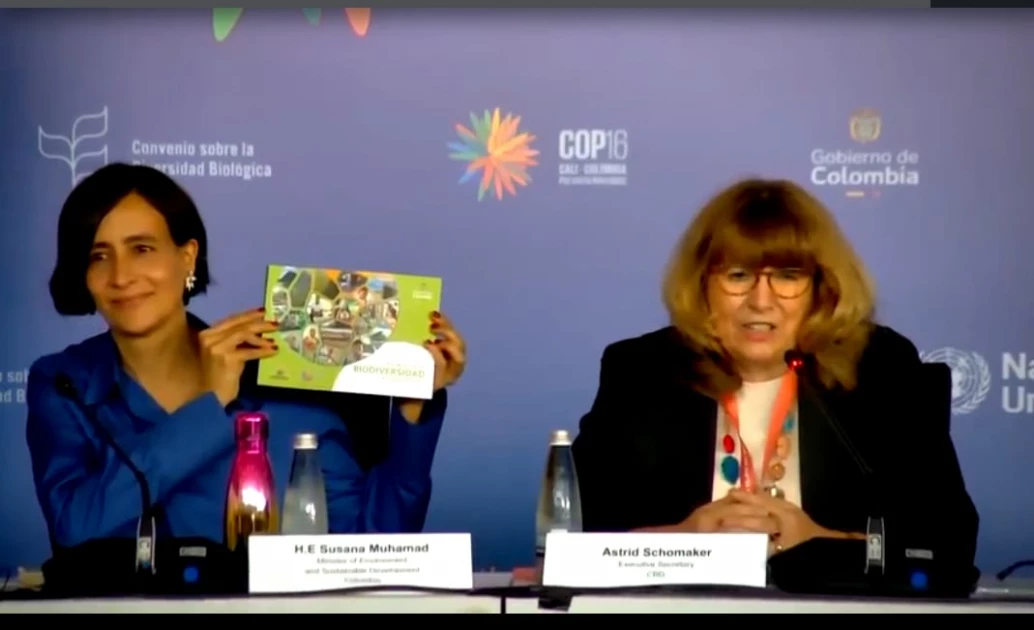COP 16 highlights urgent need for action amid limited funding for biodiversity initiatives

This assessment is crucial for the implementation of the Kunming-Montreal Global Biodiversity Framework (KMGBF), aimed at accelerating global efforts to conserve and restore nature.
Two years after the protocol adoption at COP15 in Montreal Canada, as of October 21st when curtains rolled up for COP16 summit, out of 196 member countries to the protocol, only 33 had put in their National Biodiversity Strategy and Action Plan (NBSAPs.
Michel Masozera, Director of Policy and Partnerships for the Wildlife Conservation Society in Africa, stated, “The KMGBF is an agreement committing nations to halt and reverse nature loss by 2030. Many countries have not yet submitted their targets, indicating a lack of prioritization in their actions to reverse biodiversity loss.”
The poor submission rate prompted the assessment committee to shift its focus toward identifying the challenges faced by parties, ensuring that the biodiversity community can work together to accelerate efforts to restore balance with nature.

A press release from the UN Convention on Biological Diversity (CBD) highlighted the significant challenges faced by parties, including limited funding and conflicting political priorities. CBD Executive Secretary Astrid Schomaker assured journalists in Cali that efforts are underway to secure biodiversity funding.
“For example, a group of philanthropic donors has already committed $2.2 billion to support this cause. Additionally, here in Cali, we have the opportunity to operationalize a new funding mechanism for digital sequencing and genetic resources adopted at COP 15. This fund is designed to give back to nature when we profit from genetic resources, as well as support the local communities that conserve these resources,” she explained.
COP 16 is also focusing on resource mobilization strategies. “We have a financing target of $20 billion in official development aid for developing countries by 2025,” Astrid added.
Since COP 15, two mechanism funds have been created: the Global Biodiversity Framework Fund and the Kunming Biodiversity Fund, each funded by approximately $200 million. Delegates noted that these amounts are insufficient and expressed hope that more countries will make additional funding pledges.
COP 16 President-designate Susana Muhamad expressed disappointment over the disparity in funding for wars versus conservation efforts. “Peace with nature must be a priority for international security. Resources for war are readily available—trillions in just one week—yet it takes years to secure adequate funding for the critical purpose of defending life,” she said.
Despite the internal and external challenges faced by countries in developing NBSAPs, the CBD maintains that these plans must be both ambitious and realistic. Michel Masozera emphasized that NBSAPs are essential for countries to identify priority actions to meet KMGBF commitments.
They also enable stakeholders, including the private sector, civil society organizations, academia, local and international NGOs, and donors, to unite around a common national agenda and identify areas for collaboration.
Countries that fail to submit their NBSAPs or targets will miss opportunities to secure necessary funds for conservation efforts. As Masozera noted, “Many countries have presented national targets, akin to a proposal before marriage—it's a commitment, but the financial investment in the venue and catering has yet to be made.”
This COP marks the first opportunity for countries to present their progress in developing and implementing their NBSAPs since COP 15, serving as a litmus test for the global community's commitment to meeting biodiversity targets set for 2030.
Want to send us a story? SMS to 25170 or WhatsApp 0743570000 or Submit on Citizen Digital or email wananchi@royalmedia.co.ke
Comments
No comments yet.


Leave a Comment